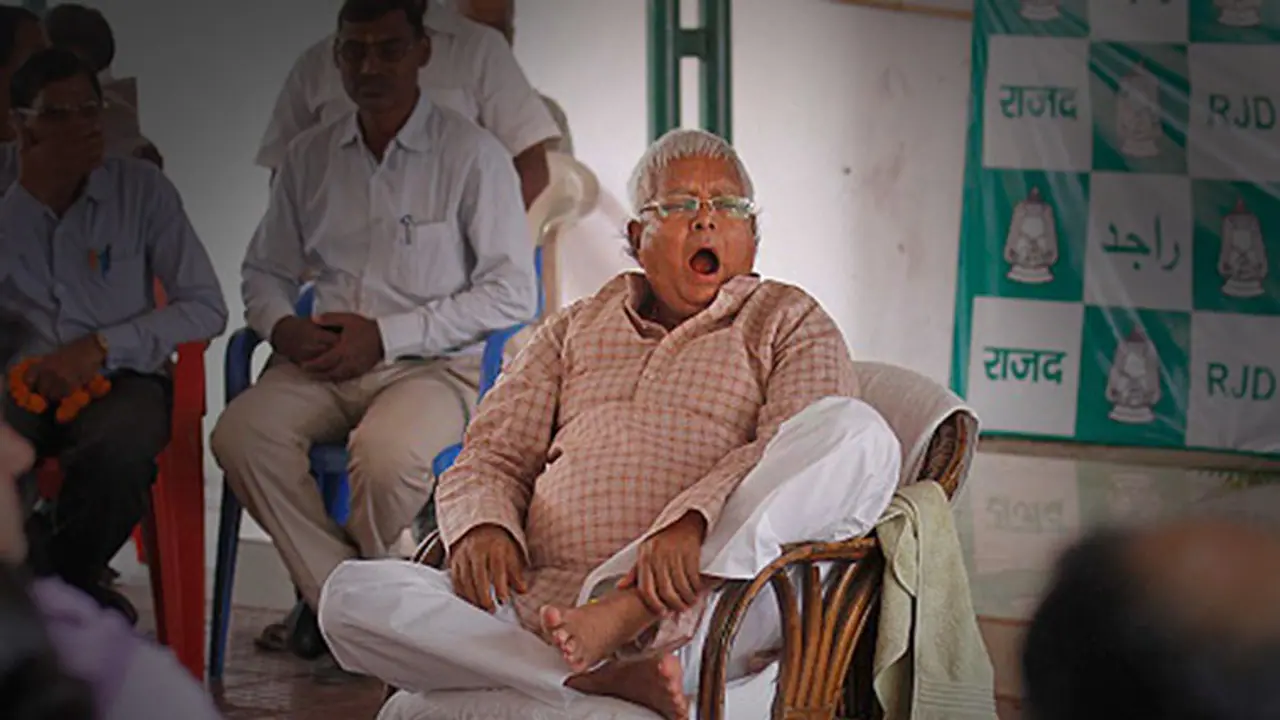The RJD leader will get ₹10,000 monthly under a pension scheme for Emergency-era detainees. Yadav and his family own assets worth crores of rupees. Pensions for politicians add to the government’s fiscal burden and do little to curb corruption.
On January 11, the Bihar government announced that it had approved RJD leader Lalu Yadav’s request to avail of a state pension scheme providing ₹10,000 a month.

Yadav will receive the money under the JP Senani Samman scheme. The scheme was started by Nitish Kumar’s JD(U) government in 2009 and was aimed at covering activists who had spent at least six months in jail during the Emergency era (1975–1977).
The Indian Express reports that more than 2,500 activists receive pensions under the scheme. The list of scheme beneficiaries includes Bihar BJP leader Sushil Modi, though he reportedly doesn’t take the payment. Yadav will receive the pension, along with arrear payments from 2009 onward. An RJD leader told the Indian Express that Yadav had applied for the scheme not for the money, but because of the “prestige” of being associated with the JP Movement.
As Yadav was barred from contesting elections for 11 years after being found guilty in the Fodder Scam in 2013, he didn’t contest the last Lok Sabha polls. In his candidate affidavit for the 2009 Lok Sabha elections, Yadav declared that he had no immovable assets, but his wife and nine children had immovable property valued at ₹1.2 crore. When his daughter Misa contested the 2014 Lok Sabha elections, she declared assets worth ₹4.72 crore. His sons, Tejashwi and Tej Pratap, showed assets worth around ₹2 crore when they contested the 2015 Assembly elections.
So the jarring question is why should a leader like Yadav, who has also been found guilty of corruption, need a pension that is more than the monthly salary of many Indians? Both the Central and State governments have done little to curb their habit of splurging liberally on both salaries and pensions for legislators. Spending on themselves is an issue on which there appears to be unanimity among politicians.
In November last year, the Central government proposed raising the salary of MPs, with their basic salaries to go up to ₹1 lakh per month, at a time when the Winter Session of Parliament was heading for a washout. In addition to their pensions, both ex-MPs and ex-MLAs across the country are eligible to numerous other benefits such as rail tickets, toll payment exemptions, medical benefits and loan allowances. In March 2016, Andhra Pradesh hiked the pension for ex-MLAs to ₹50,000 per month even as the state reeled under a financial crisis.
These hikes in salaries and pensions do little to check corruption as the nature of politics has changed with the increasing decentralisation of governance and the ascent of political dynasties like that of Lalu Yadav. Other than adding to the taxpayer’s burden, a two-fold hike in pensions or a new scheme is unlikely to improve the state of political discourse as most politicians in the country no longer retire!
